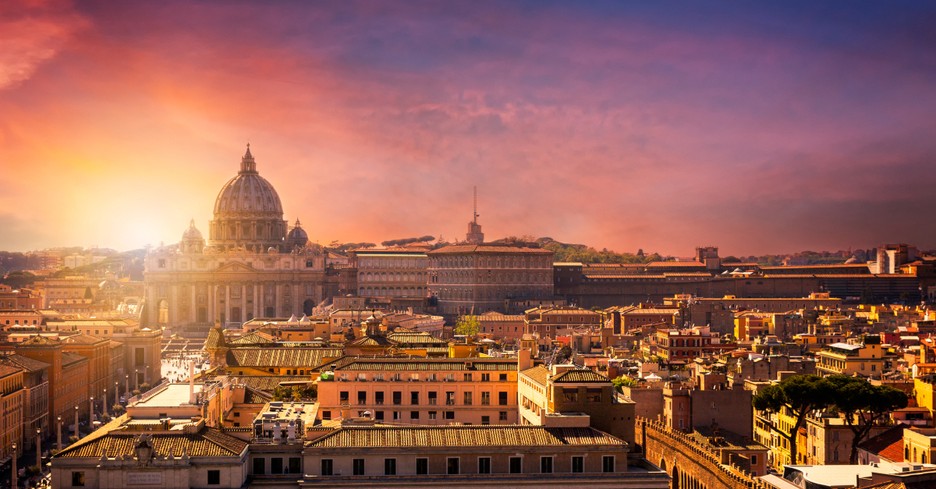
This timeline highlights key events in 5th-century Christian history, including theological controversies, the role of councils, the fall of the Western Roman Empire, the spread of Christianity among the Franks, and the contributions of significant Christian figures.
5th Century Christian History
c. 410 AD: Sack of Rome
- Visigoths, led by Alaric, sacked Rome. The event marks a decline in the Western Roman Empire and challenges for Christianity.
410-431 AD: Council of Carthage
- A series of councils in Carthage addressed theological disputes and affirmed orthodoxy.
415 AD: Execution of Hypatia
- Hypatia, a prominent female philosopher and mathematician, is killed in Alexandria, highlighting tensions between Christians and pagans.
c. 418-422 AD: Pelagian Controversy
- Theological dispute regarding the doctrine of original sin and grace. St. Augustine's writings play a significant role in this debate.
431 AD: Council of Ephesus
- The Council of Ephesus addresses the Nestorian controversy and proclaims the Virgin Mary as Theotokos (Mother of God).
451 AD: Council of Chalcedon
- The Council of Chalcedon defines the nature of Christ, asserting the two natures (divine and human) in one person.
c. 476 AD: Fall of the Western Roman Empire
- The Western Roman Empire fell, marking the end of ancient Rome and impacting the Christian Church.
c. 480-543 AD: Life of Benedict of Nursia
- St. Benedict founded the Benedictine monastic order, contributing to the spread of monasticism in Western Europe.
c. 496 AD: Conversion of Clovis
- Clovis I, King of the Franks, converted to Christianity, leading to the Christianization of the Frankish Kingdom.
c. 500-530 AD: Life of Dionysius the Areopagite
- Pseudo-Dionysius the Areopagite writes influential mystical and theological works.
c. 507 AD: Clovis' Victory over the Visigoths
- Clovis defeated the Visigoths at the Battle of Vouillé, expanding Frankish influence in Gaul.
529 AD: Closure of the Academy in Athens
- Emperor Justinian I ordered the closure of the Academy in Athens, a notable event in the decline of classical pagan education.
c. 534-537 AD: Life of Boethius
- Boethius, a Christian philosopher, wrote influential works on philosophy and theology.
c. 540-604 AD: Life of Gregory the Great
- Pope Gregory I (Gregory the Great) significantly shaped the medieval papacy and Christian liturgy.
c. 590-604 AD: Pope Gregory I's Mission to England
- Pope Gregory I sent missionaries, including Augustine of Canterbury, to evangelize England.
More on 5th-Century Christian Significance
As the barbarians increasingly threatened the Empire, sacking the city of Rome, Augustine wrote City of God (413-426), showing that the true movement of history was the unseen conflict between sin and salvation, between the city of man and the kingdom of God.
• Nestorianism spreads in the eastern church, emphasizing a distinction between Christ's human and divine natures. Chalcedon's creed describes Jesus Christ as fully human and fully divine, with the two natures existing together without confusion.
• As the emperor's power declines, the Bishop of Rome increases. Pope Leo I (440-461) negotiates and saves Rome from Attila the Hun (452). He asserts authority over other bishops, claiming the bishop of Rome is the successor to Apostle Peter.
• Patrick (c. 390-460) sold as a slave at age 16. He later escapes and goes to Ireland, where he undertakes a monumental mission.
• 496--Frankish King Clovis converted to Christianity and was baptized. Conquers half of France and paves the way for Charlemagne's "Holy Roman Empire."
• The church calendar with the Christian year begins to be in place. Cult of martyrs and relics is widespread, and the glorification of the Virgin Mary grows. Incense was first introduced into a Christian church service in the West.
• With upheavals and disintegration of secular society, church hierarchy becomes more established and influential.
Photo: Getty/DaLiu



